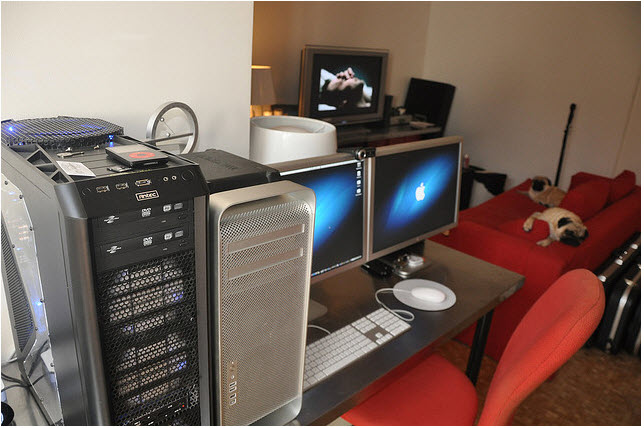
The idea of building your own desktop computer can be daunting: not only do you have to have the technical expertise to put it together, but you may think building a rig that’s not just functional, but also powerful, means having to fork over thousands: this is simply not the case.
Building your own new desktop rig ensures you have ultimate control over its power and appearance and while you might think the bulk discounts on big manufacturers get means you’d get a cheaper set-up from them, buying pre-built means you’re ultimately left with at least some parts you probably wouldn’t choose yourself. When you buy a branded computer you have very limited choice on selection of its hardware performance. Most of the time in the case of branded or pre-assembled computer you need to compromise with the brands and performance.
When building your own Personal computer, first assess your requirements: – will you need a future-proof gaming computer, just something for browsing, or something with a lot of hard-drive space for work, doing some high end graphics editing work? This will affect the components that go into your rig. If you just want to browse the net you’re hardly going to need a top of the line graphics card. This will save your money. Suppose you might be interested in editing photos and movies, so you may require to work upon softwares like Photoshop, Abode final touch etc… And this type of graphics and video editing softwares consumes lots of memory (Both RAM and dedicated graphics memory of your system). In such a case you need to select best hardware components for your computer.

Once you know what you need, you can break down the importance of each of your components. You might think the case is the least important, but if it doesn’t come with a decent PSU you’ll have to invest in one separately. Cooler Master make excellent budget cases with fantastic built in PSUs and powerful cooling fans – prices average just $50-100. You must choose a high wattage capacity PSU- power supply unit by considering your future up gradation demand because low capacity power supply unit useless when you upgrade your hardware.
To ensure your gaming rig is efficiently powered, check out the 5 best budget PC cases in 2019 here: https://www.pcguide.com/reviews/best-budget-pc-cases/
In gaming PCs the video card is by far your most important component, but don’t be blinded by brand names – the MSI R6850 Cyclone PE/OC is based on the AMD Radeon HD 6850 chipset, but as it has been overclocked can provide improved performance on the brand name at a lower price: just $150. The video card or also known as graphics card handles and process all the 3D and 2D graphics information that is going to display on the screen. Low capacity video cards are not capable of playing high graphics games and high definition videos, rather they put load on your RAM and processors to handle the requests load.
When it comes to the CPU brand names matter:

Intel processors are generally head and shoulders above the rest. If you can afford it go i5 – the Intel Core i5-2500K is a powerful midweight processor with Intel’s highest performing integrated graphics. At just $220, it’s an ideal CPU for both gaming and media PCs. If you really can’t afford then at least go with Intel i3 2ndgeneration microprocessor or you can go with AMD too for best gaming experience in cheap rates.
Regardless of your usage, with the plummeting price of hard-drives the mantra truly is “go big or go home”: 1 terabyte drives now swim in around $100 and offer the best storage option for all users. My personal opinion is go for two 500GB hard disk drives so that you have a standby option and keep your important data in both the drive so that in any worst condition. It will be easy to retrieve data without paying any cost.
Building a top-of-the-line desktop PC on a budget isn’t difficult if you have the know-how and with component prices lower than ever the question really is can you afford to not build your own?

